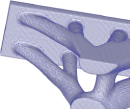Projects
NSF PATH - Functionally Graded Cement-Based Materials for Residential Construction

This research project addresses the production of cement-based materials for residential construction using extrusion so as to produce functionally graded microstructures and then measure and compute the engineering properties provided by such microstructures.
Click here for more information.
Nextrans - Development of a Finite Element Based Thermal Cracking Performance Prediction Model
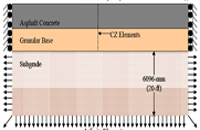
The work addresses the need for modeling software to predict thermal cracking in asphalt pavements. The model will capture the true fracture properties of hot-mix asphalt and will be used to guide in the development of a simple specification for the control of thermal cracking.
Click here for more information.
NSF - Functionally Graded Concrete for The Civil Infrastructure
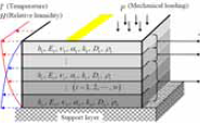
This project develops novel multifunctional and functionally graded concrete materials (FGCMs) for the civil infrastructure. FGCMs consist of multiple sub-regions within a structural layer with varying concrete constituents following a predefined compositional function, e.g. functionally graded fiber-reinforced concrete slab with varying through-thickness toughness.
Click here for more information.
Midwest Structural Sciences Center - Air Force Research Laboratory Collaboration
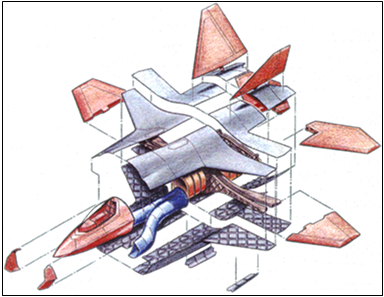
The Midwest Structural Sciences Center (MSSC) is a federally-funded research center at the University of Illinois at Urbana-Champaign which joins the expertise of faculty and students, with the work of researchers from the United States Air Force.. The goals of this research are to develop the new materials and structures needed for the air frames and space vehicles of the future, and in particular to develop risk-based tools for the design and simulation of spatially-tailored aero-thermal protective structures.
Click here for more information.
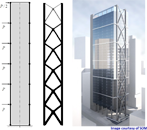
This project aims to develop the application of topology optimization towards the structural engineering industry through the design of high rise buildings.The work involves several topics, such as theoretical developments (elasticity, continuum mechanics, beams, shells), form-finding, and optimization with special finite elements (Wachspress, polygonal). Additionally, this collaboration includes a series of short course lectures on a variety of topics, spanning from the fundamentals of topology optimization through the latest developments in the field.

